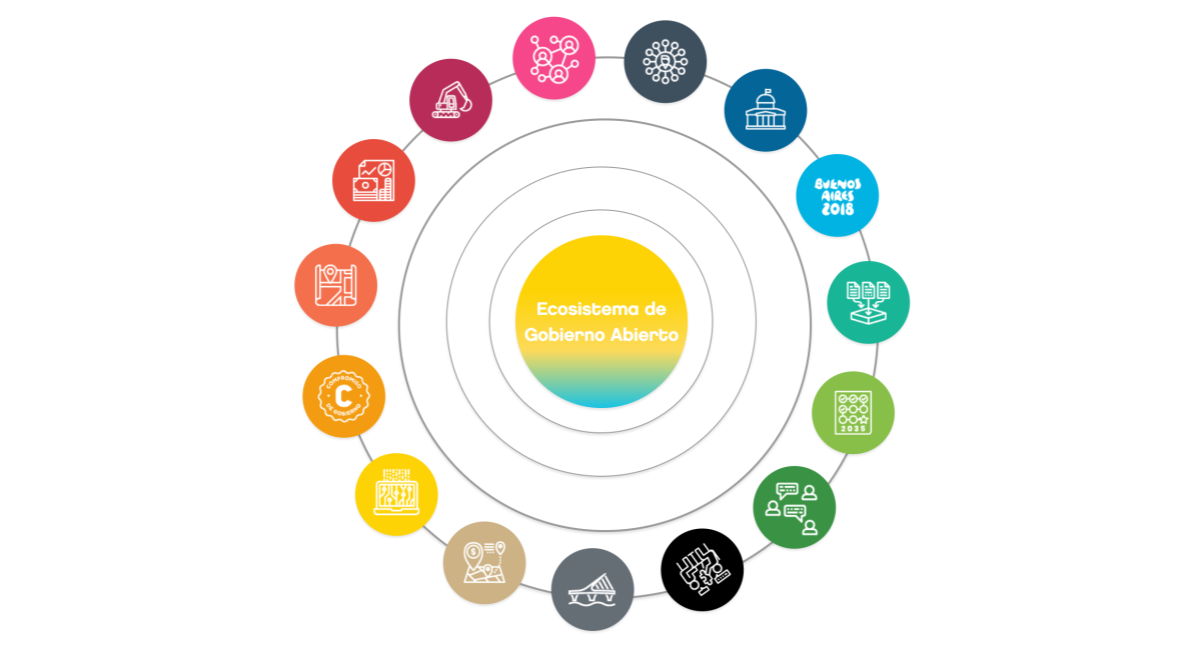In the City of Buenos Aires we aim to make open government a way of governing. To open information and data is to open the evidence that supports the public policies of a government, and that generates more trust in citizens. In addition, by opening data, the government allows other social actors to generate value from the reuse and analysis of that data, and thus, with the same information that governments have, other actors can collaborate with evidence and propose new approaches, ideas and solutions to everyday problems.
Also, open government policies improve the quality of public services because they are adapted and improved by citizens. A concrete example: two years ago, in the City we adopted a series of international standards to accompany the opening of transport data that today allows different applications -from Google to Cómo Llego, the City's app- to have the predictive arrival system. Today, public transport users can check directly on their cell phones when the bus will arrive so they don’t need to wait for it.
Herein lies the collective intelligence. Today we see how those capabilities and knowledge of the state are now dispersed throughout society. An open government makes available to citizens the same information it uses to make decisions because it believes that society, whether organized civil society or individuals, has, uses and reuses that information, adding value and generating better public policy solutions.

The experience of the City of Buenos Aires
In the City of Buenos Aires we have a long track record of open government, which began with the creation of BA Data, in 2012, the City's open data site that today has more than 300 datasets.
In 2016 we became one of the 15 pioneer cities to join the Open Government Partnership and launch an Open Government Ecosystem; a platform that brings together 15 innovative initiatives such as Government Commitments, the Open Budget Platform, Open Olympic Games, the Business Opportunities Map and BA Elige, among others.
Two years ago, we went a step further and set out to generate our developments in open source so that other governments and institutions could replicate them, adapting them to their own contexts and needs and also improving them.
This was the path we followed with BA Obras, a platform we developed at the beginning of the 2016-2019 administration to communicate to the citizens more than a thousand public works included in the most important works plan of the last years in the City.
The City has experienced the most profound urban transformation of the last decades, and in this sense, we made available to the citizens the information of all the works carried out so that they could know how they would be, who would do them, how much they would cost and, also, when they would be ready.
Driven by the belief that collective intelligence, collaboration and collective action are central pillars of open government policies, we decided to open source the site so that other cities could replicate it.
Today there are already 7 cities that have adapted the code to their local context: Vicente López, Bahía Blanca, Olavarría, Pergamino, Terezinha (Brazil), San Pedro Garza García and Veracruz (Mexico).
In this replication process, the City offers technical support for the implementation of BA Obras (BA Public Works) and the rest of the platforms, as well as strategic support to outline the measures for data openness and disclosure. Thus, by replicating them, many cities can improve the code and add functionalities to the site. It is a process from which we all benefit.
Community of practice on cities
Governments that collaborate, innovate, exchange and learn from each other are more efficient, closer and more effective in finding solutions to problems that affect people's quality of life.
Today we want to build a community of cities that promote open innovation through the openness of the platforms they develop.
With the support of the IDB and together with other pioneering cities, we intend to deepen this path in other sustainable development challenges that lie ahead, such as climate action or gender equality.
We are aware that the future of open government will not only be to open information and make it available to citizens, but also to offer to them stories of impact on people's quality of life, with data and evidence, so that these can be submitted to public deliberation.
by Florencia Romano
Undersecretary of Open Government and Accountability,
Government of the City of Buenos Aires
Source: BID

